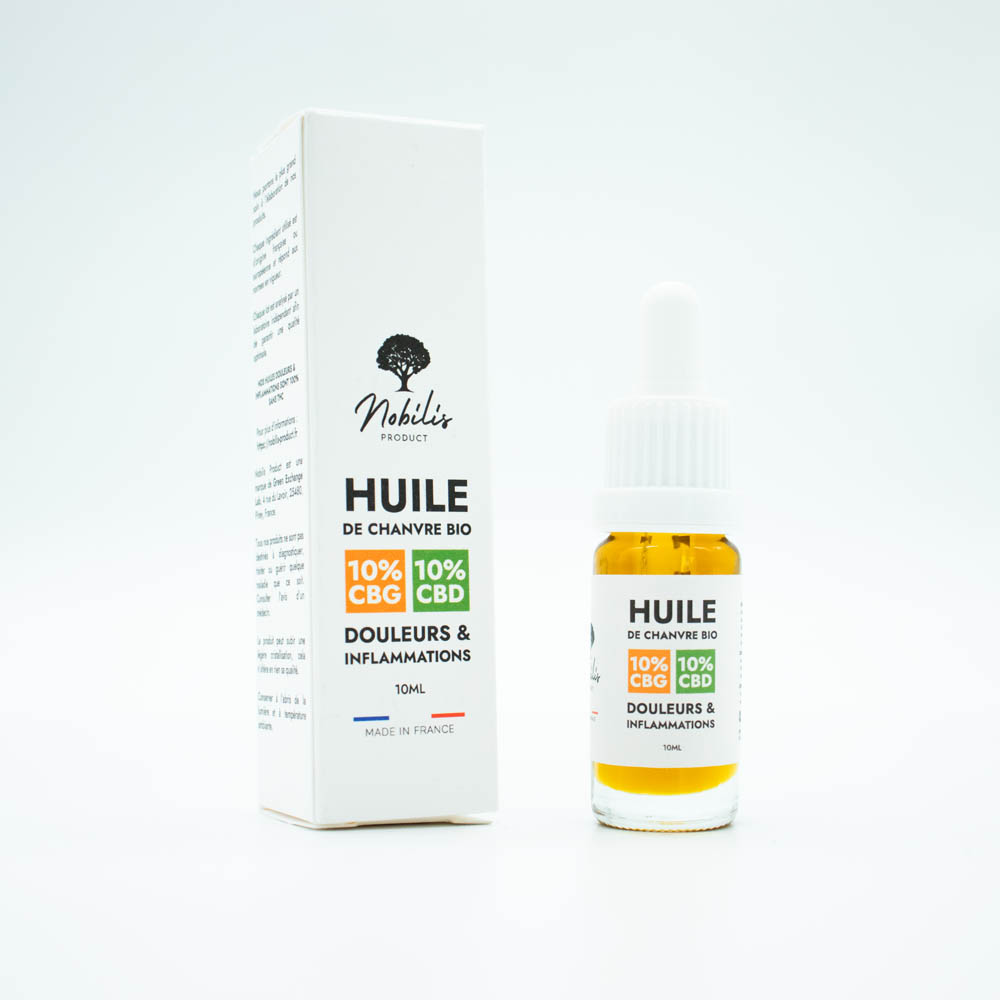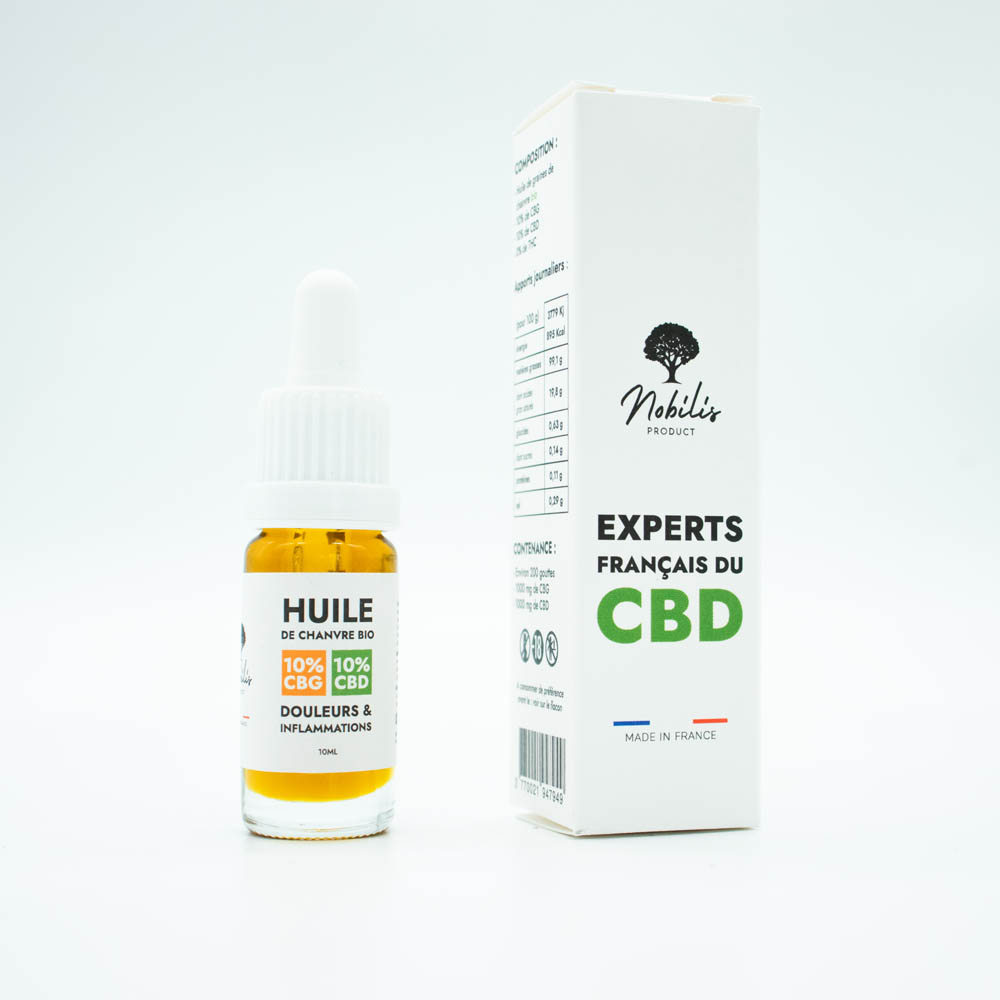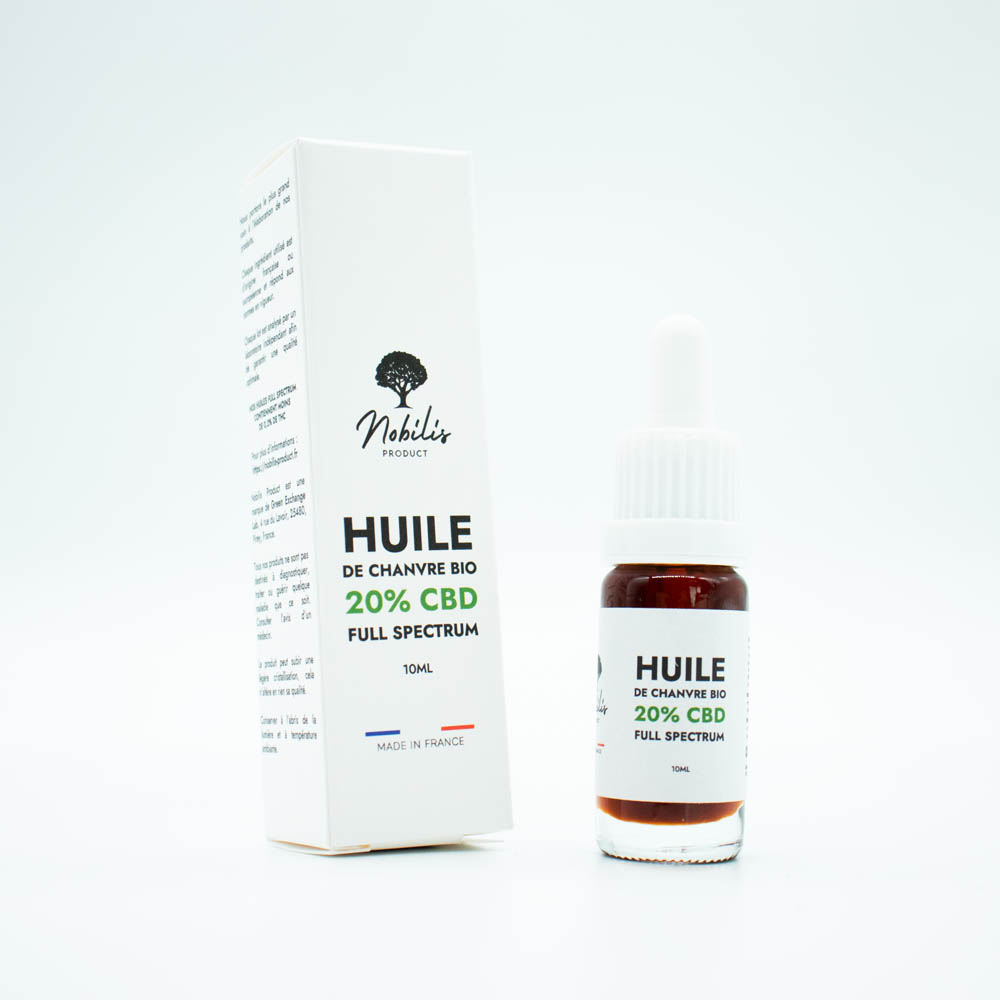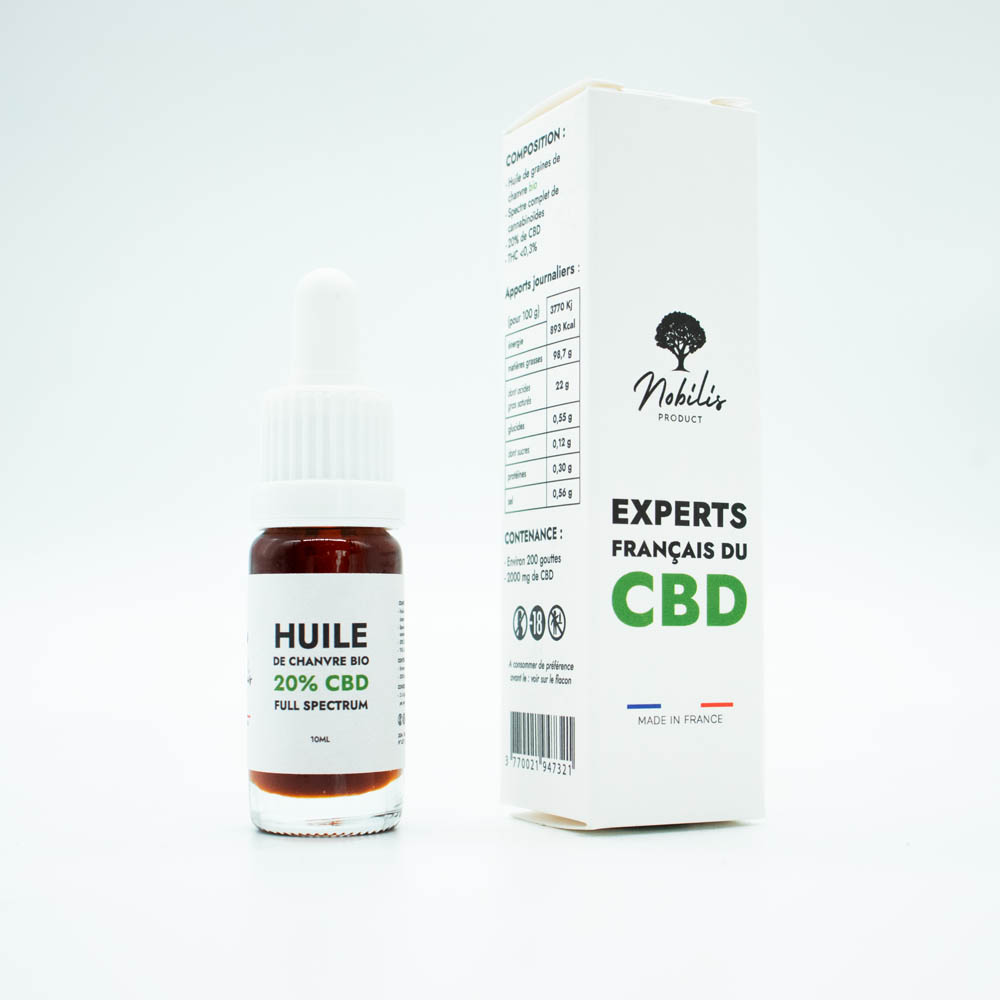Crohn's disease is a rare (around 150,000 people in France) but disabling condition. What's more, there is currently no cure, and palliative treatments have serious side effects. Given this panorama, more and more patients are turning to natural solutions such as cannabis in countries where its therapeutic use is authorized, or to cannabidiol (CBD)-based products.
Indeed, as we shall see, several studies suggest the usefulness of cannabinoids (THC and CBD) in reducing the symptoms of Crohn's disease.
Table of contents
Crohn's disease: causes, symptoms and treatments
Like hemorrhagic rectocolitis, Crohn's disease belongs to the family of inflammatory bowel diseases (IBD). It is characterized by abnormal inflammation of the tissues of the digestive tract, leading to painful fissures and swelling. It should not be confused with irritable bowel syndrome (IBS), which is not caused by an organic lesion.
Multifactorial causes
The causes of the disease are not clearly defined. However, it is generally accepted that it is probably the result of several factors:
- Genetic predisposition: in particular, mutation of the NOD2/CARD15 gene is frequently observed in people with the disease;
- Lifestyle and environment: the consumption of tobacco, alcohol and sugary foods could promote the disease;
- An imbalance in the intestinal flora (microbiota) caused by a disturbance in the immune system: the immune system attacks the "good" bacteria present in the intestine, causing inflammation of the intestinal wall.
In the majority of cases, the disease occurs between the ages of 20 and 30, and affects women slightly more often than men.
Symptoms of Crohn's disease
Crohn's disease causes chronic inflammation of the walls of the gastrointestinal tract. Although it can affect any segment of the digestive tract, the inflammation is generally localized at the end of the small intestine (ileum) and/or in the colon, causing :
- Abdominal pain ;
- Stomach cramps;
- Nausea, vomiting ;
- Loss of appetite may lead to weight loss and anemia.
The pathology also causes "non-digestive" symptoms such as :
- Severe fatigue;
- Discomfort;
- Mouth ulcers;
- Psoriasis (inflammation of the skin causing red patches);
- Uveitis (inflammation of the eyes);
- Erythema nodosum (red, painful blisters on the legs and forearms)
These symptoms appear in the form of flare-ups, the intensity and duration of which vary from person to person, followed by periods of remission, which also vary.
Classic treatments
As we said earlier, there is no cure for Crohn's disease, but there are a number of treatments available to help manage some of the disease's symptoms, particularly pain.
Patients are prescribed :
- Non-steroidal anti-inflammatory drugs (NSAIDs) such as Ibuprofen for mild attacks;
- Or corticosteroid-based steroidal anti-inflammatories in the event of a severe flare-up. However, their use is limited in time, due to the significant side effects and increased risk of addiction.
Since the symptoms of Crohn's disease are due to an excessive immune response, it is also possible to act on the immune system through the use of immunomodulators.
But then again, this type of treatment can have serious side effects. In fact, inhibition of the immune system increases the risk of viral and bacterial infections. As a result, patients are usually also treated with antibiotics, which can damage the intestinal flora and ultimately worsen the disease.
Cannabis to treat IBD
Cannabis is a medicinal plant that has been used since the dawn of time for its many therapeutic properties, notably to relieve abdominal cramps, nausea and vomiting.
Today, the scientific community is looking into a possible treatment based on cannabinoids, the molecules synthesized in cannabis.
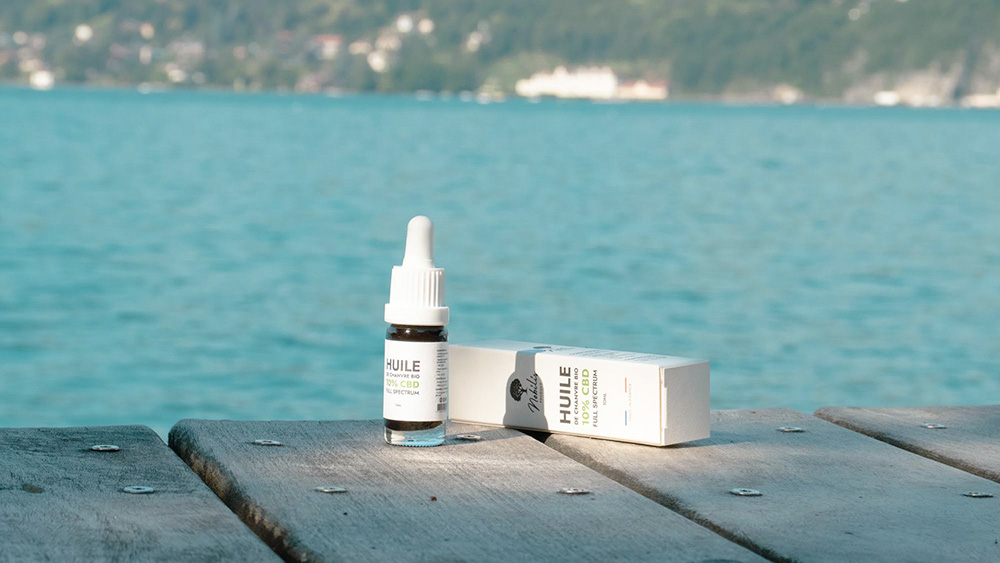
The endocannabinoid system
If modern medicine is entertaining the idea of using a plant like cannabis, it's because the human body is equipped with an endocannabinoid system that regulates important physiological functions such as pain, appetite, mood and stress response. We discuss this subject in a dedicated article entitled CBD and stress!
This system synthesizes neurotransmitters called endocannabinoids, which can detect and act to regulate dysfunctions in the immune, nervous and digestive systems.
Cannabinoids such as THC and CBD mimic the behavior of endocannabinoids by binding to the same receptors. In other words, they too may have the capacity to regulate a whole host of physiological processes, including pain, inflammation, nausea, vomiting and hunger.
In fact, therapeutic cannabis and certain medicines formulated with THC and CBD are currently prescribed to people undergoing heavy treatment to stimulate appetite and reduce nausea and vomiting.
Cannabis to treat Crohn's disease: scientific studies
In the United States, around 15% of people with IBD such as Crohn's disease use cannabis to relieve their symptoms. Although its use is widespread, there are very few serious studies to measure its effectiveness.
Only two small studies have shown that cannabis consumption can indeed help reduce pain, nausea and vomiting, without having any beneficial effect on the cause of the disease, i.e. the inflammatory process. In other words, cannabis doesn't cure it, but it can help improve quality of life. [1]
One of them [2], conducted in a double-blind study on 21 people with Crohn's disease for whom no conventional treatment was effective, produced encouraging results:
- In the cannabis group, 45% were cured. This compares with 1% in the placebo group;
- A clinical improvement was observed in 90% of subjects who received cannabis, compared with 40% of those in the placebo group;
- 30% of patients treated with cannabis were weaned off their dependence on corticosteroids;
- Finally, all patients who received cannabis reported improved appetite and sleep without significant side effects.
Another study [3], carried out on over 300 people, 17.5% of whom used cannabis, showed that its use reduced the intensity of certain symptoms such as :
- Abdominal pain (83.9%);
- Abdominal cramps (76.8%) ;
- Joint pain (48.2%);
- Diarrhea (28.6%).
CBD and Crohn's disease
As we've just seen, studies into the potential benefits of cannabis on Crohn's disease are encouraging. However, it's not clear whether these benefits are attributable to THC, CBD or the plant as a whole.
In any case, in France, therapeutic cannabis is unfortunately not yet legal. So Crohn's sufferers have little choice but to turn to CBD products. Could it be potentially useful?
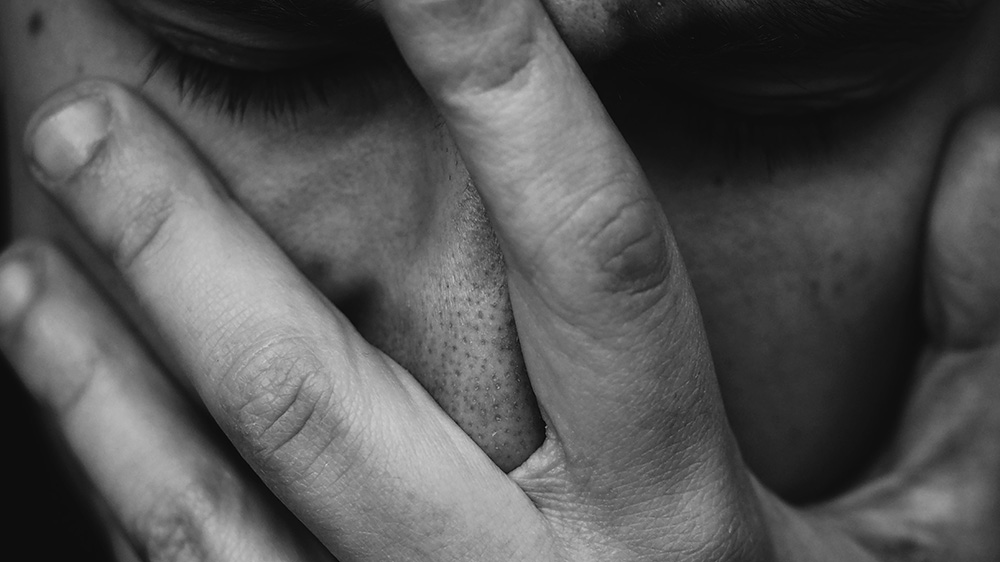
Action on the inflammatory response
The symptoms of Crohn's disease are due to a disturbance in the immune system, causing an inflammatory response so aggressive that it attacks the walls of the digestive tract.
This is why patients are prescribed immunomodulators, to modulate the functioning of their immune system. Unfortunately, these drugs don't regulate, they inhibit. The result is a drop in immune defenses, which increases the risk of infection.
Perhaps one day, scientists will develop a CBD-based treatment capable of replacing these drugs.
Indeed, numerous studies [4] document the immunosuppressive properties of cannabinoids, and CBD in particular. Although its mechanisms of action are still unclear, it is thought to induce apoptosis of immune cells, thereby helping to reduce the inflammatory response and, in the case of Crohn's disease, potentially reduce associated symptoms.
Effects on intestinal motor disorders
Crohn's disease can cause severe diarrhea and intestinal pain due to intestinal hypermotricity.
The presence of CB2 receptors in the digestive tract has been demonstrated [5], suggesting a potential regulatory action of CBD. Indeed, CBD is capable of stimulating this type of receptor indirectly (via degradation of the FAAH enzyme).
Thus, CBD could potentially help regulate bowel function and reduce both associated pain and diarrhea. However, this action has not yet been the subject of specific studies.
Pain relief and effects on quality of life
In addition to its potential action on CB2 receptors located in the gut, CBD could also help reduce pain.
In fact, CBD acts on the synthesis of certain hormones. More specifically, it may promote the synthesis of serotonin (aka the "happy hormone"), which is involved in feelings of well-being and serenity. Taking CBD could therefore help patients to feel less pain, which could, by domino effect, also improve their quality of life.
High serotonin levels promote :
- Quality sleep, and therefore more energy during the day;
- Anda stable, positiveemotional state
Antioxidant properties
Some recent studies suggest a link between oxidative stress and Crohn's disease. In this sense, although this link is not yet accepted, the antioxidant properties of CBD could be of interest. [6]
Numerous studies have demonstrated the antioxidant action of CBD. One study shows that it :
- Prevents the synthesis of free radicals, which are responsible for the effects of oxidative stress;
- Reduce the number of free radicals by giving them an electron. Since free radicals have one electron less, their harmful effects are explained by the fact that they seek this electron in the nucleus of healthy cells.
Consumption of CBD-based products is probably not enough to reduce the effects of oxidative stress. Indeed, it must be combined with a healthy lifestyle (no smoking, limited alcohol consumption, UV protection, etc.). However, it remains a plus that could help tip the balance in favor of a better quality of life.
Taking CBD for Crohn's disease
As we've seen, several interesting leads suggest that taking CBD could help improve the lives of people with Crohn's disease, particularly by reducing the intensity of certain symptoms.
However, it is imperative to seek the advice of a physician. After all, the risk of interaction with other drugs is not zero, and it's preferable that your doctor be aware of the risks involved, so that he or she can provide effective follow-up.
Which CBD for Crohn's?
There are plenty of CBD products to choose from, and as long as the quality is there, one is no better than the other! It's all about choosing a product that suits your habits and tastes.
However, in the specific case of Crohn's disease, two types of products seem to us to be more suitable than others:
- CBD flowers, which can be consumed with a herb vaporizer or infused in a hot drink (with fat);
- Full spectrum CBD oilsCBD oils, which are easy and discreet to consume, simply placing a few drops under the tongue.
These two types of product are the most faithful to the cannabis plant in terms of composition. And as we saw earlier, the use of cannabis in Crohn's disease patients is more widely documented than the use of CBD.
In fact, both the flowers and the full spectrum oils contain all the molecules synthesized in cannabis. THC is present at less than 0.3%, which is insufficient to produce any psychotropic effect.
-
THC-free 10% CBG and 10% CBD "Pain and Inflammation" oil
Rating 5.00 out of 529,90 €10% CBG + 10% CBD oil for lasting relief of chronic pain and inflammation. A synergy of cannabinoids to soothe the body, without addiction or psychotropic effects.
✔️ THC-free, non-addictive
🇫🇷 Made in France with French ingredients in our laboratory
🧪 Total traceability: We extract the active ingredients from Hemp ourselves.
💧 10 ml bottle with dosing pipette - around 250 drops for easy, precise use -
CBD Oil 20% Full Spectrum - Nobilis Product
Rating 5.00 out of 529,90 €Our Full Spectrum 20% CBD oil is a concentrate of nature and French know-how. Derived from hemp grown without GMOs or additives, it contains twice the concentration of cannabidiol as our 10% formula, while retaining all the cannabinoids, terpenes and flavonoids naturally present in the plant.
Thanks to theenhanced entourage effect, this oil promotes a deeper action on stress, body tension and sleep quality.
Its 10 ml format with pipette allows precise, easy dosing, even at high concentrations.
This oil is :
-
🇫🇷 Produced in our French laboratory, from hemp extraction to bottling, with full traceability
-
🌿 Réalisée à partir de crude de CBD, pour conserver toute la richesse moléculaire du chanvre : CBD, CBG, CBN, THC < 0,3 %, flavonoïdes, terpènes
-
✅ Analyzed with every batch by an independent laboratory, to guarantee consistent, uncompromising quality
-
What about dosage?
The efficacy of cannabinoids is intrinsically linked to dosage. Unfortunately, this depends on a whole host of factors inherent to each individual, such as age, weight, symptom intensity and sensitivity to cannabinoids.
That's why we recommend a gradual approach: start with a low dose and gradually increase every 5 to 7 days until the desired effects are achieved.
For information, the maximum recommended dose of CBD is 1500 mg/day.
What results can we expect?
The benefits of CBD on the symptoms of Crohn's disease have not been proven. However, many sufferers use cannabis to relieve their pain, stimulate their appetite or improve the quality of their sleep.
In short, CBD use can help increment well-being and quality of life, but it is not a cure. In any case, it is strongly recommended that you seek medical advice.
Our sources
[1] An overview of cannabis based treatment in Crohn's diseasePubMed
[4] Cannabinoid-induced apoptosis in immune cells as a pathway to immunosuppressionPubMed
[5] Cannabinoid CB2 receptors in the gastrointestinal tract: a regulatory system in states of inflammationBritish Pharmacological Society
[6] Involvement of oxidative stress during chronic inflammatory bowel disease: a case-control studyJFHO

